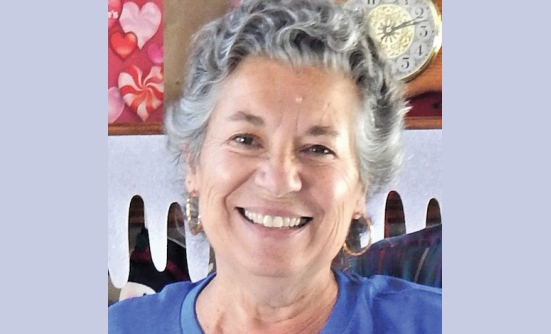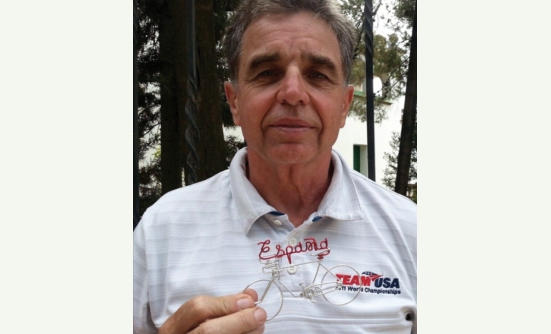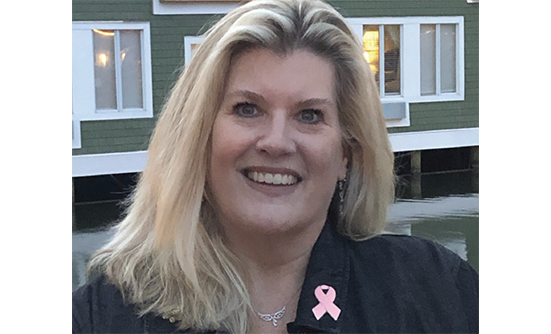
In the April issue of CONQUER: the patient voice, my article “A Guide to Kidney Cancer for Survivors and Caregivers” served as an introduction to kidney cancer, the types of treatments and their potential side effects, and encouragement for patients to take control of controllable factors. In this second article in our kidney cancer series, I will dive deeper to discuss the diagnosis, cancer staging, and specific treatments for kidney cancer. I will also talk about managing the possible side effects of treatment, nonphysical symptoms, and the importance of mental health for you and for your caregiver. Let’s start with diagnosis and staging.
Diagnosis and Staging
When kidney cancer is suspected, your doctor will request testing to confirm the diagnosis; that testing will include a biopsy of the suspicious cells. A biopsy is a sample of tissue that will be examined to determine the type of cancer. In some cases, the biopsy may also be examined to identify genetic factors and biomarkers that may be helpful in determining treatment.
Biopsies can be performed during surgery or through a needle biopsy procedure (especially when the tumor is small and may not be treated with surgery).
Once the cancer is confirmed, the patient will undergo testing to stage the cancer, which may include bloodwork, imaging (including CT scan, MRI, or chest x-ray), and urinalysis.1
All cancers are assigned a “stage.” For kidney cancer, a reliable staging method incorporates the “TNM” staging system. This system considers many factors to help your doctor determine how early or advanced the cancer is, and the best way to treat it. “T” describes the size of the tumor and any spread of cancer into nearby tissue; “N” describes the spread of cancer to nearby lymph nodes; and “M” describes metastasis (spread of cancer to other parts of the body).
Treatment by Disease Stage
Your doctor will review your biopsy results, laboratory tests, imaging, and staging to determine your treatment. Stage I and stage II cancers may only require surgery, followed by frequent surveillance (follow-up visits with your physician) with imaging to ensure that the cancer has not returned. Stage III and stage IV cancers will require surgery and may also require medicine after surgery—also called “adjuvant treatment.”2
Stage I cancers are usually treated with surgery alone. This is done by removing part or all of the kidney that contains the tumor. Surgery can be completed through traditional methods or through a laparoscopic procedure using small instruments, a camera, and small incisions.2
Stage II and stage III cancers require radical nephrectomy (the removal of the entire kidney and part of the fatty tissue surrounding it). Depending on the extent of the tumor, your surgeon may also need to remove lymph nodes or other tissue in the abdomen.2 If you have stage III kidney cancer, clear-cell cancer (a type of kidney cancer), or an increased risk for recurrence, you may require adjuvant treatment with medicine.
If you have stage IV kidney cancer, you may benefit from surgery. Your doctor will weigh the risks of surgery against the potential benefit. You can also expect to receive a treatment course with medicine.
Medicines That Treat Kidney Cancer
Medicines used to treat cancer are classified by how they work (also called their “mechanism of action”). The classes of drugs used to treat kidney cancer include tyrosine kinase inhibitors (TKIs), mammalian target of rapamycin kinase inhibitors (mTORs), and monoclonal antibodies.
Drugs have such complex names, but when you look carefully at their generic names (by contrast to the trade name given by the manufacturer), you can identify their drug class. Let me teach you a trick: if the generic name ends with “tinib,” the drug is a TKI, such as cabozantinib, the generic name of Cabometyx.2 Drug names ending with “limus” are in the mTOR class, such as everolimus, the generic name of Afinitor. A drug name ending with “mab” is a monoclonal antibody, such as nivolumab, the generic name of Opdivo.2 Let’s review these drug classes and discuss their potential side effects.
Tyrosine Kinase Inhibitors
TKIs stop cancer-cell growth either by preventing the growth of new blood vessels or by preventing the cancer cell itself from growing and dividing.2 Inlyta (axitinib) and Tarceva (erlotinib) are examples of TKIs. Their side effects may include high blood pressure, bleeding, problems with wound healing, diarrhea, nausea, constipation, skin rash, mouth sores, nail changes, and radiation recall reactions.3
Multikinase inhibitors are also included in the TKI category, but they block multiple pathways instead of just one. For example, Cabometyx (cabozantinib), Sutent (sunitinib), and Lenvima (lenvatinib), as well as Nexavar (sorafenib) and Votrient (pazopanib), are all multikinase inhibitors.2 In addition to the side effects seen with the TKIs, the side effects of the multikinase inhibitors may also include fatigue, cardiac events, and altered taste.3
You will need to avoid some citrus fruits, including grapefruit, while taking some of the multikinase inhibitors.3 Furthermore, Sutent may also cause a problem with the jaw known as osteonecrosis, so it is important to tell your dentist if you take Sutent, because you may need to be seen more frequently.3
mTOR Drug Class
Drugs in the mTOR class block the signal that causes cells to grow and divide—Afinitor (everolimus) and Torisel (temsirolimus) are 2 examples. Their side effects include fatigue, nausea, vomiting, rash, loss of appetite, and high cholesterol and glucose levels.3 When taking these drugs, you should avoid receiving live vaccines, as well as avoid contact with people who have received live vaccines.4 Also avoid grapefruit and other citrus fruits.3
Monoclonal Antibodies
Medicines in the monoclonal antibody class are also known as immunotherapies and work by helping the immune system to identify and kill cancer cells. Keytruda (pembrolizumab), Opdivo (nivolumab), Yervoy (ipilimumab), Bavencio (avelumab), and Avastin (bevacizumab) are all examples of monoclonal antibodies and share side effects such as fatigue, nausea, vomiting, infusion reactions, joint and muscle pain, colitis, neuropathy, skin rash, and cough.3
Physical Side Effects of Treatment: Communication is Key!
It is important to take your medications exactly as prescribed and inform your doctor of any side effects as soon as you experience them. When you report side effects early, they can be managed, giving you a better chance of continuing treatment. Your doctor can prescribe supportive care medications to manage side effects and help get you through the treatment. If the side effects persist, you may need a break from the treatment, a change in the dosage, or a change of drug. My advice to you: Don’t hide symptoms. Admit when something is wrong. Your entire care team wants the best for you and wants to help you through the treatment.
Cancer and Mental Health
Many people facing a cancer diagnosis will have anxiety, depression, and mood disorders.5 Many survivors may also have physical and emotional distress because of the cancer diagnosis. Up to 50% of people with cancer have mental health distress, but few will mention it to their healthcare provider.5 Untreated mental distress can result in physical symptoms and poor quality of life during cancer treatment5 and beyond.
What can you do to relieve distress?
- Tell someone on your healthcare team if you are experiencing any mental health concerns; they will have interventions to help you overcome your distress
- Use coping strategies or calming methods that have worked for you in the past, such as listening to music,6 spending time with a pet, or painting
- Keep your medical records. Ask for copies of imaging reports, pathology, and lab results; keeping those records will allow you to review them later, write down questions, and keep yourself informed about your health and treatment strategy6
- Counseling. A psychologist, psychiatrist, social worker, and/or spiritual/religious advisor5 can offer help; you may need to seek counsel from more than 1 specialist to address different concerns
- Join a support group. Many support groups are available online and in person. Learning from others and sharing your story can be a powerful experience
- Exercise. Physical activity, such as walking or yoga, is often very helpful in relieving symptoms of fatigue, stress, anxiety, and depression4,6
- Medication. Drugs such as antidepressants and anxiety medications may be helpful during this time; these can also often help relieve pain symptoms, such as peripheral neuropathy.
Asking for Help
Do not be afraid to ask for help! It is completely normal to experience physical and emotional distress throughout a cancer journey. Your healthcare team is standing by, ready to provide you with the resources you need to ease distress and make your quality of life as positive as possible. Help is available; you just have to ask for it.
Remember, there are almost 17 million other survivors in the United States, all of whom have had similar feelings about a cancer diagnosis. You are not alone. Through education, self-care, support, and connectedness, you can live an empowered survivorship.
Caregivers' Corner
Caregivers, you are in the company of approximately 3 million caregivers of patients with cancer in the United States alone.4 You have such an important role in the care of your loved one, a role that can be quite complex and can change quickly, depending on the needs of the person with cancer.4 Many times, you perform complex medical care while also coping with the uncertainty of this disease.4 In fact, 42% of family caregivers will provide medical care without sufficient training, averaging more than 32 hours per week.4 This is a lot to deal with. “Caregiver strain” or “caregiver burden” are terms used to describe the impact of your role on your emotional and physical health.
What can you do to ease that strain?
- Educate yourself. Learning about the type of cancer your loved one is fighting, including the treatments and their potential side effects, can help you to prepare in advance. When you both know what to expect, you can support each other. Learning how to perform medical tasks or relieve symptoms before they occur will result in less stress and anxiety.4
- Counseling. Seek counseling as an individual or as a couple with your loved one.
- Join a support group. Connecting with other caregivers can be very helpful.
- Talk to friends, other family members, your spiritual advisor, or your primary care provider about your experiences and feelings.4,7
- Mindfulness. Meditation, yoga, reading, and doing the things you enjoy can help significantly to reduce stress and anxiety.4,7
- Medication. Antidepressants and other medications may be helpful if your symptoms persist.
As a caregiver, you are an important part of the team. It is perfectly normal to feel overwhelmed at times. Caring for someone with cancer can affect you financially, physically, mentally, and emotionally. It is healthy to ask for help, take a break, and set limits. Remember, you must care for yourself before you can care for others.
Survivorship facts
- Currently, there are almost 17 million cancer survivors in the United States
- The National Comprehensive Cancer Network defines an individual as a survivor from the time of diagnosis through treatment and the balance of the person’s life8
Risk factors for kidney cancer2:
- Smoking
- Obesity
- High blood pressure
- Family history
Symptoms of kidney cancer may include9:
- Blood in your urine
- Low back pain on one side
- Feeling tired
- Loss of appetite
- Unexplained weight loss
- Fever
- Anemia (low red blood cells)2
Treatment can include:
- Surgery
- Medicine (systemic therapy)
- Radiation
References
- National Comprehensive Cancer Network. NCCN Clinical Practice Guidelines in Oncology (NCCN Guidelines): Kidney Cancer. Version 4.2021. April 19, 2021. www.nccn.org/professionals/physician_gls/pdf/kidney.pdf. Accessed February 14, 2021.
- National Comprehensive Cancer Network. NCCN Guidelines for Patients: Kidney Cancer. 2020. www.nccn.org/patients/guidelines/content/PDF/kidney-pa tient.pdf. Accessed September 25, 2020.
- Chu E, DeVita VT Jr, eds. Physicians’ Cancer Chemotherapy Drug Manual 2021. 21st ed. Burlington, MA: Jones & Bartlett Learning; 2020.
- Jadalla A, Ginex P, Coleman M, et al. Family caregiver strain and burden: a systematic review of evidence-based interventions when caring for patients with cancer. Clinical Journal of Oncology Nursing. 2020;24(1):31-50.
- Granek L, Nakash O, Ariad S, et al. Strategies and barriers in addressing mental health and suicidality in patients with cancer. Oncology Nursing Forum. 2019; 46(5):561-571.
- American Cancer Society. Managing distress. Revised February 3, 2020. www.cancer.org/treatment/treatments-and-side-effects/physical-side-effects/emotional-mood-changes/distress/managing-distress.html. Accessed March 2, 2021.
- American Cancer Society. Caregiver Resource Guide: Caring for a Loved One with Cancer. 2019. www.cancer.org/content/dam/cancer-org/cancer-control/en/booklets-flyers/american-cancer-society-caregiver-resource-guide.pdf. Accessed March 2, 2021.
- National Comprehensive Cancer Network. NCCN Clinical Practice Guidelines in Oncology (NCCN Guidelines): Survivorship. Version 1.2021. February 24, 2021. www.nccn.org/professionals/physician_gls/pdf/survivorship.pdf. Accessed September 25, 2020.
- American Cancer Society. Kidney cancer signs and symptoms. Revised February 1, 2020. www.cancer.org/cancer/kidney-cancer/detection-diagnosis-staging/signs-and-symptoms. Accessed September 25, 2020.
Patient Resources
American Cancer Society
www.cancer.org/treatment/caregivers/caregiver-resource-guide.html
Interactive Caregiver Resource Guide
CancerCare
1-800-813-4673
Cancercare.org
Provides free professional support services for caregivers and loved ones
Cancer Survivors Network
csn.cancer.org
Online support group for patients and caregivers
Kidney Cancer Association
1-800-850-9132
kidneycancer.org
A source of education and resources for patients, caregivers, and anyone impacted by kidney cancer
MyLifeLine
1-888-234-2468
Mylifeline.org
Provides free personal websites that
allow patients and caregivers to post
updates, request assistance, and
coordinate care
National Institute of Mental Health
Nimh.nih.gov
Provides information on symptoms,
diagnosis, and treatment of mental
health disorders















